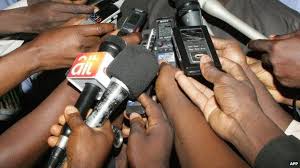Ngozi James
Media Rights Agenda (MRA) on Tuesday decried what it termed rising spate of uninvestigated attacks against journalists in Nigeria in recent years.
The organisation, therefore called on the Nigerian government to take urgent measures to create a safe and conducive environment for journalism practice in Nigeria, both online and offline, adding that attacks undermines government’s obligation to protect media practitioners.
In a statement to commemorate this year’s World Press Freedom Day (WPFD), MRA urged the Federal Government to make a commitment to protect journalists and other media workers from various forms of attacks, including online, saying such a move would signal its appreciation of the importance of the theme of this year’s WPFD, which is “Journalism Under Digital Siege”.
MRA said in the statement signed by its Communication’s Officer, Mr. Idowu Adewale, that “recent advancements in surveillance technologies all over the world and Nigeria’s acquisition of such technologies in recent years is having a significant negative impact media freedom and freedom of expression more broadly, the safety of journalists, access to information and the right to privacy, thereby putting all of these rights at risk. It is also putting journalists under siege.”
Adewale argued: “human safety and security as well as respect for human rights and fundamental freedoms should underpin any national cybersecurity effort. There can be no justification for the indiscriminate interception, monitoring or surveillance of people’s private communication, which leaves innocent citizens fearful for their safety and of their government.”
According to him, where the Government or its security agencies plan to engage in targeted communication surveillance, such action may only be carried out within the framework of a law that conforms with international human rights law and standards, upon a specific and reasonable suspicion that a serious crime has been or is being carried out and after the prior authorisation of an independent judicial authority has been obtained.
Adewale called on the Government to put an end to practice by security agencies and regulatory bodies of interfering in different ways with the rights of individuals to seek, receive and impart information or to communicate with others through any means of communication and digital technologies, such as by blocking or otherwise intentionally disrupting access, saying actions constitute a violation of international human rights law and standards.
He said besides refraining from engaging in any such intentional disruption of access to the internet and other digital technologies, the Government’s international human rights commitments also impose an obligation on it not to condone any such action by other actors, including private companies and criminal groups.

